For many NetSuite consulting partners, ACS Optimize can feel a bit like taking your car to the dealership: structured, expensive, and you’re never quite sure who’s actually working under the hood.
Some teams get strong results. Others run into familiar patterns:
- A $233/hour “use it or lose it” plan outsourced halfway across the world.
- Junior specialists who burn 31 hours on a single task and still can’t find the root cause.
- Weeks of delays, hand-offs between consultants, and zero internal knowledge transfer.
- A reminder that “you need to define the problem better” every time you ask for help.
This isn’t hearsay. They’re stories shared across delivery teams, admins, and CFOs who’ve leaned on ACS while juggling their own growth.
It’s not about ACS being “bad.” It’s about knowing where their model stops—and where specialized optimization partners pick up the slack.
Let’s break down the four ongoing support benefits that set true optimization partners apart from the “dealer service desk” experience and why leading consulting firms are quietly switching.
Why Optimization Gaps Appear In the First Place
Most consulting partners don’t plan for optimization gaps—they creep in quietly, usually between go-live and the first renewal cycle.
It starts small.
- A workflow that worked fine in UAT now struggles under real data volumes.
- Reporting requests pile up faster than the team can deliver.
- A key admin leaves.
- A customization built by an external team isn’t fully documented.
And then something bigger happens: the optimization backlog starts eating into delivery capacity.
Senior consultants get pulled off new billable work to fix small but critical issues. Support tickets drag on for weeks. Internal teams get reactive instead of strategic.
ACS can help with some of this—but their model is built for structured engagements, not the messy, fast-moving reality of a partner managing multiple clients at once.
That’s where specialized optimization support comes in: to handle the in-between work that ACS doesn’t prioritize and internal teams can’t always absorb.
What are NetSuite Optimization Services?
NetSuite Optimization Services aren’t about starting over. They’re about fixing what gets messy after go-live.
Every consulting partner knows this phase. The system’s technically “live,” but:
- Workflows that looked fine in UAT are buckling under real transaction volumes
- Dashboards crawl because saved searches were never optimized
- Scripts pile up with no clear owner
- Integrations are technically working but slowing everything down
- And everyone’s relying on the one admin who knows where all the duct tape is stashed
That’s where optimization comes in. It’s the work between implementations, the layer that keeps NetSuite clean, fast, and scalable while your delivery teams focus on new projects.
It’s also where a lot of partners quietly lose time and margin because this work doesn’t fit neatly into a new SOW, but it still has to get done to keep clients happy and systems stable.
See how top firms structure their optimization work in 5 Proven NetSuite Optimization Models to Maximize ERP ROI.
NetSuite support vs NetSuite optimization services
A lot of firms use “support” and “optimization” interchangeably. They’re not the same thing.
Support is what keeps the wheels turning. Optimization is what gets rid of the squeaks, loose bolts, and half-baked workarounds that creep in over time.
For consulting partners, knowing the difference matters. The first keeps you reactive. The second gives you delivery leverage, happier clients, and fewer 2 a.m. “urgent” messages.
For a closer look at what full-scale support can include, check out NetSuite Support Services: Comprehensive Solutions Beyond Basic Technical Support.
4 NetSuite Services Ongoing Support Benefits That Give Consulting Partners Real Leverage
Once the gaps appear, partners face a choice: stretch internal teams thinner, overpay for structured vendor support, or bring in a partner designed to keep delivery sharp between major projects.
The smart ones pick option three. Here’s why:
1. Protect senior billable hours with an optimization “shield”
Your senior consultants should be focused on delivery, not stuck rewriting saved searches for the third time this week.
Specialized optimization support acts like a protective layer, absorbing mid-complexity work so your top talent stays billable:
- Dashboard, script, and workflow tweaks that normally eat half a day
- Data cleanup, saved search optimization, and quick config fixes
- Post-go-live issues that don’t warrant a new SOW but still block client work
Result: Higher utilization, cleaner backlogs, and more predictable delivery velocity.
2. Scale delivery capacity without hiring full-time
Adding headcount for “optimization work” rarely pencils out. You either overhire and carry idle staff, or underhire and burn out your admins.
A flexible support partner gives you surge capacity when pipelines spike, without committing to permanent hires:
- Tap into 3-15 years’ NetSuite expertise only when needed
- Avoid the recruiting/onboarding lag of hiring niche roles.
- Keep margins healthy even when project volume fluctuates
Result: Elastic capacity that follows your deal flow, not fixed overhead.
If your current support can’t scale this way, see 6 Reasons to Switch from Your Current Provider.
3. Strengthen pre-sales and client retention with proactive fixes
Many partners lose deals or renewals because clients experience “ERP drift” between go-lives and optimizations. A strong optimization partner flips that:
- Quick-turn improvements before renewal conversations = better NPS
- “We’ll have this fixed by tomorrow” builds trust during pre-sales cycles
- Strategic insights (not just fixes) position your firm as the long-term brain, not just the implementer
Result: Higher renewal rates, more upsells, and stronger client stickiness.
4. Build organizational knowledge instead of leaking it
Every backlog ticket is a chance to either build internal capability or lose it.
When issues get bounced around between junior ACS consultants and overworked admins, knowledge falls through the cracks.
Specialized partners work differently:
- Senior consultants explain the “why” behind fixes
- Documentation is structured for future reference
- Patterns are surfaced so internal teams can anticipate issues next time
Result: Fewer repeat problems, smoother handoffs, and compounding delivery efficiency.
Learn how Stockton10’s model compares in 5 Service Levels Most Providers Don’t Offer.
Typical NetSuite Optimization Project Scope and Timeline
Optimization projects aren’t one-size-fits-all. Some are quick hits that clear immediate delivery blockers. Others dig deep into legacy setups and unlock serious performance gains.
What they all have in common is this: they follow a predictable arc once someone competent takes the wheel.
Here’s how most well-run optimization engagements break down:
- Discovery & Assessment (1-2 weeks)
- Identify performance bottlenecks, bad scripts, inefficient workflows, and reporting pain points
- Review admin habits, third-party integrations, and “temporary” fixes that became permanent
- Prioritize issues by impact, not just volume of complaints
- Sandbox Fixes & Testing (2-4 weeks)
- Clean up scripts, rework workflows, and streamline dashboards in a safe environment
- Validate changes with key functional stakeholders before anything touches production
- Document what was fixed— and why—to build internal knowledge
- Deployment & Stabilization (1-2 weeks)
- Push changes to production in structured phases
- Monitor key transactions, saved searches, and reporting performance to make sure nothing regresses
- Train admins or delivery leads on new configurations to avoid repeating past mistakes
- Continuous Optimization (Ongoing)
- Schedule health checks every quarter or major release cycle
- Tackle new inefficiencies before they hit client inboxes
- Keep scripts, dashboards, and workflows aligned with changing business needs
Smaller projects like dashboard tune-ups or role permission cleanups can run in as little as 1-2 weeks. Larger system-wide optimization projects typically run 6-10 weeks, depending on how much technical debt you’re inheriting.
Cost Considerations for NetSuite Optimization Services
Most consulting partners know optimization work is essential—but budgeting for it is where things get fuzzy.
Some vendors bury costs inside rigid annual bundles. Others charge premium rates for junior talent.
The smartest firms treat optimization like what it is: a controllable operating expense tied directly to delivery performance, not an unpredictable “extra.”
Here’s what typical cost structures look like when you work with a specialized optimization partner like Stockton10:
- Philippines: starts at $70/hour
- Australia / New Zealand: starts at $85/hour
- Local (US): starts at $130/hour
- Starter Package: discounted rates for 30-40 hours over three months (ideal for testing the waters without long commitments).
Compare that to some vendor models charging $233/hour for offshore resources under “use it or lose it” contracts, and the gap becomes clear.
What affects optimization costs
Optimization pricing isn’t arbitrary. A few factors have an outsized impact:
- Project complexity: A saved search cleanup is not the same as untangling a spaghetti mess of SuiteScripts.
- Module coverage: Core financials vs. Advanced Revenue Management, SuiteBilling, or multi-book accounting can shift required expertise.
- Integration load: The more external systems you’re syncing, the more time goes into tuning and testing.
- Technical debt: If you’re inheriting a system where every “temporary” fix became permanent, expect more cleanup time.
- Level of internal involvement: Clear context from your admin team = faster resolutions = lower cost.
Before you commit to any pricing model, ask these 6 NetSuite Optimization Questions.
Why partners should care
For consulting partners, this isn’t just about price—it’s about predictability and control. A transparent hourly structure lets you:
- Map optimization costs directly to utilization and delivery timelines
- Protect margin on fixed-fee projects by moving optimization work off senior consultants’ plates
- Scale spend up or down with the pipeline, instead of committing to bloated annual bundles
The result: you get the flexibility to treat optimization like a strategic lever, not a line-item surprise at renewal.
How to Choose the Right NetSuite Optimization Partner
Not all optimization partners are built the same.
Some operate more like basic ticket desks, while others integrate like embedded senior team members.
The difference shows up fast—in ticket turnaround, backlog health, and how often your delivery leads get pulled into “one quick thing” that turns into a week.
If you’re evaluating partners, here’s what to look for:
- Real senior NetSuite expertise: Look for consultants with 3-15 years of NetSuite experience across functional and technical roles—not juniors reading from SuiteAnswers. They should be able to solve problems and explain the “why” behind their fixes.
- A flexible support model: Rigid annual bundles might work for vendors, but they don’t match partner pipelines. You want a model that lets you scale hours up or down, without penalizing you for slower months.
- Fast, defined SLAs: Slow ticket queues kill delivery momentum. A strong partner should offer clear response times (e.g., Stockton10’s 30-minute guaranteed response) and stick to them.
- Knowledge transfer baked in: If fixes disappear into a black box, you’ll just keep paying for the same problems. Your partner should document what they fix, why, and how to avoid repeating it.
- Proven experience working with consulting partners: End-user support is one thing. Supporting your delivery pipeline is another. Pick a partner that understands the pace, priorities, and escalation layers of a consulting firm—not just single-instance admin work.
- Transparent pricing: You should understand your optimization bill quickly and easily. Look for straightforward hourly or package-based pricing without hidden escalations.
Choosing the right optimization partner isn’t about finding the cheapest resource.
It’s about finding someone who extends your delivery capacity, keeps your team focused on high-value work, and doesn’t fall apart under real-world conditions.
Scale smarter with the right optimization partner
NetSuite consulting partners don’t lose margins on big go-lives. They lose them in the months that follow.
It’s the silent backlog: scripts that never got cleaned up, dashboards that drag, tickets that bounce around while senior consultants get pulled off revenue work.
The firms that stay ahead aren’t working harder. They’re building lean, flexible optimization layers around their delivery teams.
The kind that protect senior hours, clear operational clutter fast, and keep clients quietly impressed.
That’s exactly where Stockton10 comes in. With:
- Senior NetSuite specialists (3-15 years’ experience)
- 30-minute guaranteed response times
- Flexible Lite and Professional plans that scale with your pipeline
- Transparent pricing starting at $70/hour
…you get a partner built for your delivery model—not a one-size-fits-all vendor bundle.
If you’re ready to stop losing hours to “in-between” work and start scaling more profitably, book a call with Stockton10 and see how top consulting firms are restructuring their post-go-live strategy.









.avif)




